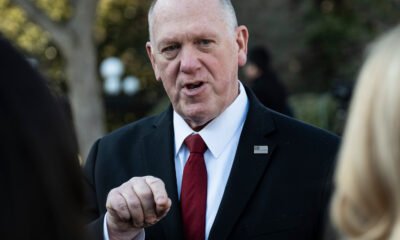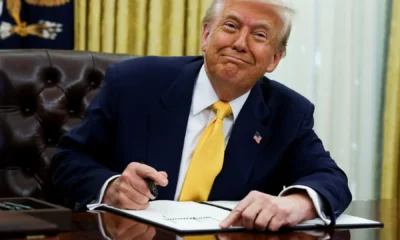Business
Tesla shocks Wall Street with $1 trillion pay deal for Elon Musk but will it make him a trillionaire?
The unprecedented 10-year package ties Elon Musk
’s future to Tesla’s boldest ambitions yet—from robotaxis to a $8.5 trillion valuation.’
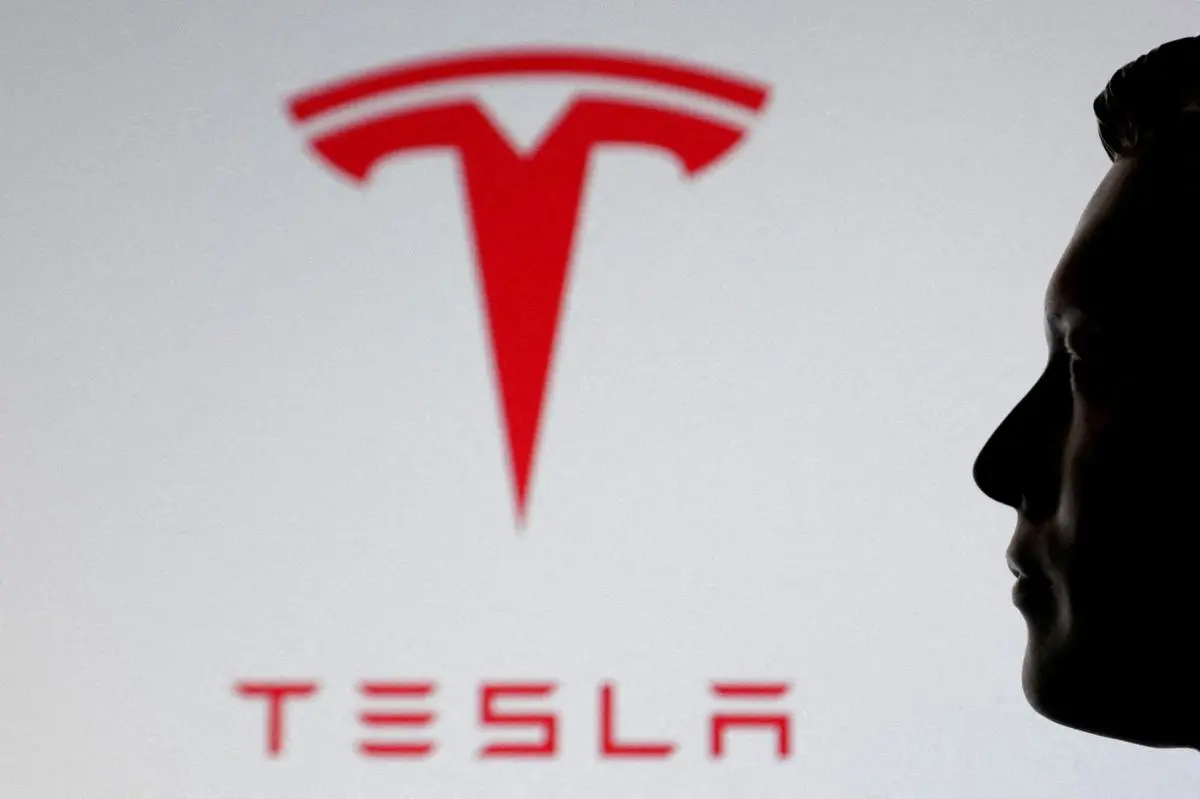
In one of the most audacious moves in corporate history, Tesla Inc. has proposed a new compensation package for CEO Elon Musk worth up to $1 trillion. The plan, revealed in a proxy filing Friday, is designed to lock Musk’s attention on Tesla for the next decade while setting some of the most ambitious targets ever seen in the auto industry.
The proposal comes at a crucial time: Tesla’s market capitalization sits around $1.1 trillion, but the package requires it to soar to at least $8.5 trillion. That would make Tesla more valuable than Nvidia, currently the world’s most valuable company.
A trillion-dollar carrot
If Musk meets all the performance goals—including deploying 1 million robotaxis, delivering 20 million vehicles, and commercializing 1 million Optimus robots—his stake in Tesla would jump to at least 25%. That kind of equity would not only cement his control but could push his personal net worth past $2 trillion, making him the world’s first trillionaire.
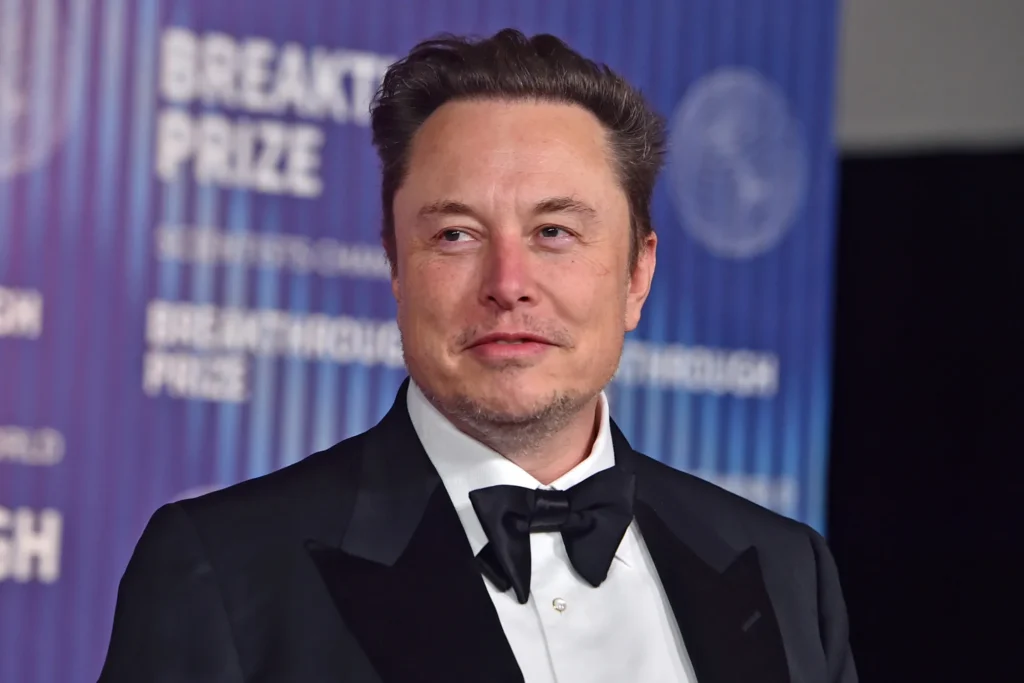
The filing makes clear Tesla’s reasoning:
“Simply put, retaining and incentivizing Elon is fundamental to Tesla achieving these goals and becoming the most valuable company in history,” wrote Chair Robyn Denholm and director Kathleen Wilson-Thompson.
Why Tesla needs Musk now
Musk’s grip on Tesla is undeniable. Since becoming CEO in 2008, he has led the company from niche EV maker to global juggernaut. But his attention is divided among his empire—SpaceX, Neuralink, The Boring Company, and his new AI startup xAI, which recently absorbed Twitter, now known simply as X.
Some investors worry Musk’s political forays—most notably his financial backing of former President Donald Trump—and his high-profile controversies distract from Tesla. The board acknowledged these concerns but said direct experience with Musk “does not support that characterization.”
Still, the package includes provisions requiring Musk to remain CEO or a top executive responsible for Tesla’s products and operations. Without that, he forfeits the award.
Table of Contents
The stakes for Tesla shareholders
The package is structured across 12 tranches, each tied to both market capitalization and operational milestones. For instance, one milestone requires Tesla to grow adjusted EBITDA to $400 billion. Others involve delivering landmark volumes of vehicles and robots.
Critics say the numbers sound outrageous. Nancy Tengler, CEO of Laffer Tengler Investments, admitted the payout “may seem outrageous to the average person,” but emphasized that if Musk achieves it, shareholders also win big.
Market reaction and legal backdrop
Tesla shares rose 3% on the news, though the stock remains down 16% this year. The timing is notable—Tesla is still appealing a Delaware court ruling that struck down Musk’s prior $50 billion pay package from 2018, citing conflicts of interest on the board. Oral arguments in that case are scheduled for October 15.
Meanwhile, the interim $30 billion award Musk received in August would be forfeited if the 2018 package is reinstated. The new trillion-dollar plan seems designed both to placate Musk and secure Tesla’s long-term vision.
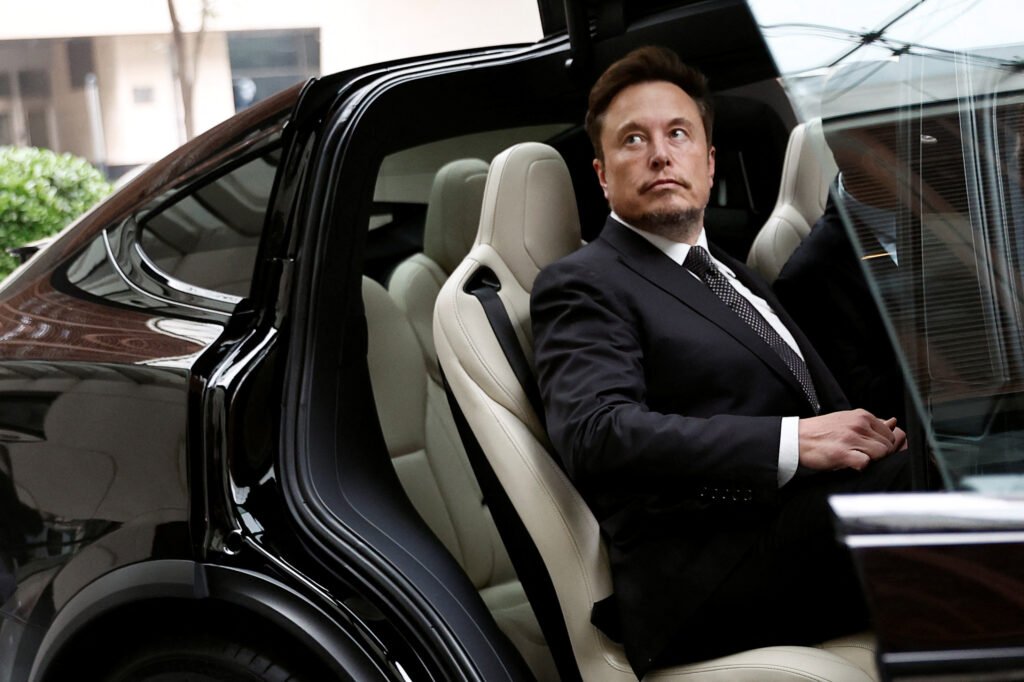
More than just cars
The package underscores Tesla’s shift away from being just an automaker. Musk sees its future in robotaxis, robotics, and AI-driven platforms. Already, Tesla has begun pilot programs for its robotaxi fleet in Austin. If successful, this could transform Tesla into a mobility-as-a-service giant, more akin to Uber or Alphabet’s Waymo than a traditional car company.
As Gene Munster of Deepwater Asset Management put it:
“Tesla’s board recognizes there’s a huge opportunity over the next decade, and they want to start lining things up for a potentially massive outcome.”
For more Update http://www.dailyglobaldiary.com
Business
What’s Still Open on Christmas Eve 2025? The Stores, Restaurants and Major Chains Americans Are Rushing To
From last-minute groceries to fast food fixes and gift shopping, here’s who’s open on December 24 — and who’s closing early

Christmas Eve has quietly become one of America’s busiest shopping and dining days. As millions prepare for December 25 celebrations, another holiday ritual unfolds — the last-minute dash for groceries, gifts, prescriptions, or a quick bite before stores shutter early.
In 2025, most major retailers, grocery chains, and restaurants are open on Christmas Eve, though many are operating on reduced or special hours. Planning ahead matters, especially as closing times vary widely by location.
Here’s a clear, category-by-category breakdown of what’s open on December 24, 2025, across the U.S.
Grocery Stores Open on Christmas Eve 2025
If you’re missing ingredients for dinner or dessert, these grocery chains are welcoming customers — but not all day.
- Aldi — Open, most locations closing around 4 p.m.
- Food Lion — Open until 7 p.m.; pharmacies from 9 a.m. to 3 p.m.
- Stop & Shop — Open until 6 p.m.
- Trader Joe’s — Open, closing at 5 p.m.
- Wegmans — Closing at 6 p.m.
- Whole Foods — Regular opening, closing at 7 p.m.
Tip: Many stores stop restocking shelves hours before closing — earlier visits are safer.
Drugstores Open on Christmas Eve
Pharmacies remain essential stops for holiday travelers and families.
- CVS Pharmacy — Open, though hours vary by location
- Walgreens — Open; pharmacy hours may differ from retail hours
Fast-Food Chains & Restaurants Open on Christmas Eve
Hungry during the holiday scramble? You have options.
- Applebee’s — Select locations open
- Chick‑fil‑A — Open Christmas Eve (closed Dec 25)
- Burger King — Open at most locations
- Dunkin’ — Open, hours vary
- IHOP — Open
- McDonald’s — Open, location-based hours
- Taco Bell — Open
- Starbucks — Many stores open, reduced hours
Domino’s stores are not required to open — customers should check local listings.

Mail, USPS, UPS: Are Deliveries Running?
Yes — with exceptions.
- United States Postal Service locations are open
- Mail delivery runs except Priority Mail Express
- Blue collection boxes will be picked up December 24
- UPS will deliver packages, though pickup schedules vary
Last-Minute Gift Shopping: Retailers Open on Christmas Eve
Most major retailers are open — but many close early.
- Best Buy — 8 a.m. to 7 p.m.
- Costco — Open
- Dollar General — Many open until 10 p.m.
- Home Depot — Closing at 5 p.m.
- HomeGoods, Marshalls, T.J. Maxx, Sierra — 7 a.m. to 6 p.m.
- IKEA — Closing early (varies by location)
- JCPenney — Opens 9 a.m., closing varies
- Kohl’s — 7 a.m. to 7 p.m.
- Macy’s — 8 a.m. to 7 p.m.
- Michaels — 7 a.m. to 6 p.m.
- Petco — Most close at 7 p.m.
- Target — 7 a.m. to 8 p.m.
- Walmart — 6 a.m. to 6 p.m.
Is the Stock Market Open on Christmas Eve?
Yes — but only for a short session.
U.S. stock markets are open on December 24, closing early at 1 p.m. ET, instead of the usual 4 p.m.
The Bottom Line
Christmas Eve 2025 remains one of the most active retail days of the year — but timing is everything. Many stores close earlier than usual, and some services scale back well before evening.
If you’re heading out on December 24, check local hours first, plan efficiently, and don’t wait until nightfall — the doors may already be locked.
For more Update- DAILY GLOBAL DIARY
Business
Netflix Chiefs Walk the Warner Bros. Lot… A Power Move After Paramount Skydance’s Bid Is Rejected
As Warner Bros. Discovery shuts the door on Paramount Skydance, David Zaslav rolls out the red carpet for Netflix’s Ted Sarandos and Greg Peters

In Hollywood, timing is rarely accidental — and neither are photo ops.
On the very same day that Warner Bros. Discovery’s board officially rejected Paramount Skydance’s hostile bid, WBD CEO David Zaslav made a conspicuously public statement about where his company’s future may be headed.
Zaslav welcomed Netflix co-CEOs Ted Sarandos and Greg Peters to the iconic Warner Bros. Studio lot in Burbank — a visit documented through a series of carefully released images that quickly caught the industry’s attention.
The message was subtle in tone but loud in implication.
A Walk Through Hollywood History
Photos released by WBD on Wednesday show Zaslav strolling alongside Sarandos and Peters across the legendary studio grounds, including a stop in front of the instantly recognizable Warner Bros. Water Tower — a symbol of nearly a century of film and television history.
Officially, the visit was described as a meeting between Netflix leadership and executives at the studio. Unofficially, it read as a public endorsement of Netflix’s vision — and perhaps, its wallet.
ALSO READ : Taylor Swift Quietly Changes Lyrics to Two Reputation Songs on Apple Music, Swifties Go Into Detective Mode
Just weeks earlier, on December 5, Netflix had its $82.7 billion bid for WBD’s streaming and studios division accepted. That division includes crown-jewel assets such as Warner Bros. Pictures, HBO, HBO Max, and DC Studios.
Why the Paramount Skydance Bid Fell Flat
Earlier that same day, WBD’s board formally rejected the hostile takeover attempt from Paramount Global and Skydance Media — a move that insiders say reflected both strategic concerns and cultural misalignment.
While Paramount Skydance’s offer aimed to consolidate legacy media power, Netflix’s proposal centers squarely on streaming dominance, global scale, and technology-driven growth — areas where the streamer has already proven its reach.
By opening the gates of the Warner Bros. lot to Netflix’s top brass, Zaslav appeared to signal not just preference, but confidence in where the deal is heading.
A Not-So-Quiet Signal to Hollywood
Hollywood executives are well aware that studio tours are rarely casual affairs. Allowing Sarandos and Peters to be photographed on the lot — especially amid active acquisition talks — sends a clear signal to investors, talent, and competitors alike.

It suggests continuity rather than disruption. Legacy rather than liquidation.
Netflix, long viewed as the industry disruptor, has increasingly positioned itself as a studio caretaker, not just a streaming platform. The Warner Bros. assets would give Netflix unprecedented access to intellectual property, prestige brands, and theatrical infrastructure.
For Zaslav, the optics matter. In an industry still grappling with streaming losses, debt pressure, and shifting audience habits, stability — or at least the appearance of it — can be as valuable as the deal itself.
What Happens Next
While regulatory approvals and shareholder reactions still loom, the visit underscores a reality that few in Hollywood now ignore: the battle for the future of legacy studios is being fought not behind closed doors, but in plain sight.
And sometimes, a walk past a water tower says more than a press release ever could.
Business
From DVSA to AI fleets… key leadership moves reshaping transport, automotive and tech sectors this week
New appointments at DVSA, Aion Auto, Microlise, Leasing Options, Motive, and GRS Fleet Graphics signal a busy end to 2025 for industry leadership

It has been a decisive week for leadership across the UK’s transport, automotive, logistics and AI technology sectors, with a series of high-profile appointments aimed at tackling long-standing challenges and preparing businesses for rapid growth in 2026.
From clearing driving test backlogs to launching new car brands and scaling AI-powered fleet platforms, these moves underline how talent and experience are becoming central to operational reform.
New DVSA chief tasked with tackling driving test backlog
The Driver and Vehicle Standards Agency (DVSA) has confirmed Beverley Warmington as its new Chief Executive, effective January 5, 2026. She takes over from Loveday Ryder, who has led the agency since 2021.
Warmington arrives at a critical moment, with learner drivers across the UK facing prolonged test waiting times that have affected employment and mobility. She brings nearly 20 years of public service experience, most recently as Area Director for London, Essex and Eastern England at the Department for Work and Pensions (DWP), where she oversaw operations involving more than 12,000 staff.
UK Roads and Buses Minister Simon Lightwood praised the appointment, saying Warmington has the operational leadership needed to “grip the driving test backlog” and ensure reforms translate into faster, safer access to driving tests.
Aion Auto strengthens UK launch plans with senior marketing hire
As Aion Auto gears up for its UK market entry in 2026, the brand has appointed Alex Key as Marketing Director, reporting directly to Managing Director Jon Wakefield.
Key brings more than two decades of automotive marketing experience, having previously held senior roles at Honda, BMW Group, MINI, and Suzuki GB. Her recent work included helping steer Suzuki through a major rebrand and its first electric vehicle launch.
Wakefield said her ability to shape brand identity will be “pivotal” as Aion prepares to introduce itself to UK consumers in an increasingly competitive EV market.
Microlise appoints new CTO to drive logistics innovation
Transport technology specialist Microlise has named Dean Garvey-North as its new Chief Technology Officer, succeeding Duncan McCreadie, who retires after a decade with the company.
Garvey-North brings senior digital leadership experience from the utilities sector and management consultancy. He is also a member of Gartner’s CIO community and a contributor to the Forbes CIO Technology Council.
Microlise CEO Nadeem Raza said the appointment reinforces the company’s ambition to remain the UK’s most trusted name in transport technology, particularly as logistics firms push for efficiency, sustainability and smarter data-driven operations.

Leasing Options promotes Danielle Jones to head of marketing
Manchester-based vehicle leasing firm Leasing Options has promoted Danielle Jones to Head of Marketing, recognising her role in a major transformation of the brand’s digital and customer strategy.
Since joining in 2024, Jones has led a rebrand, rolled out new TV and audio campaigns, and overhauled email marketing with redesigned customer journeys. In her expanded role, she will oversee all marketing, lead generation, social media and PR activity.
Chief Operating Officer Mike Thompson described the promotion as a “natural next step” aligned with the company’s long-term growth ambitions.
Motive adds AI heavyweight to board
AI-powered operations platform Motive has appointed Adeyemi Ajao to its Board of Directors, strengthening its leadership as it scales internationally.
Ajao is the co-founder and managing partner of Base10 Partners, a venture capital firm focused on technology transforming the real economy. Motive CEO Shoaib Makani said Ajao’s experience as a founder and investor will help translate AI innovation into durable enterprise value.
GRS Fleet Graphics appoints operating partner to support growth
GRS Fleet Graphics has appointed James Hopkins as Operating Partner, a move designed to strengthen operational capability across both GRS and Epic Media Group.
Hopkins brings extensive experience across automotive operations, fleet management, telematics and B2B services. General Manager Martin Tyrrell said his leadership will be key as the business continues to scale and serve mid-size and large fleets across public and private sectors.
A clear trend heading into 2026
Taken together, these appointments point to a wider trend: organisations across transport, automotive and logistics are investing heavily in experienced leadership to modernise services, deploy AI, and improve customer outcomes.
As 2026 approaches, these executives will be under close watch — not just for strategy, but for execution.
For more Update – DAILY GLOBAL DIARY
-

 Entertainment6 days ago
Entertainment6 days agoHe-Man Wears a Suit Now… Nicholas Galitzine’s ‘Masters of the Universe’ Trailer Drops a Shock Fans Didn’t See Coming
-

 Entertainment1 week ago
Entertainment1 week agoBrazil Eyes Oscar History Again… ‘The Secret Agent’ Scores Best Picture Nomination as Wagner Moura Stuns Hollywood
-

 Entertainment4 days ago
Entertainment4 days ago“Comedy Needs Courage Again…”: Judd Apatow Opens Up on Mel Brooks, Talking to Rob Reiner, and Why Studio Laughs Have Vanished
-

 Entertainment1 week ago
Entertainment1 week agoBox Office Shocker as Chris Pratt’s ‘Mercy’ Knocks ‘Avatar 3’ Off the Top but Nature Had Other Plans…
-

 Entertainment6 days ago
Entertainment6 days agoOscars Go Global in a Big Way as This Year’s Nominations Signal a New Era: ‘The Academy Is Finally Looking Beyond Hollywood…’
-

 Entertainment1 week ago
Entertainment1 week agoMichael Bay Makes a Power Move… Blockbuster Director Signs with CAA in a Deal That’s Turning Heads
-

 Entertainment6 days ago
Entertainment6 days ago“Dangerously Kinky… and Darkly Funny”: Olivia Wilde and Cooper Hoffman Push Boundaries in ‘I Want Your Sex’
-

 Entertainment1 week ago
Entertainment1 week agoFans Didn’t Expect This Look… Nicholas Galitzine’s Masters of the Universe Trailer Sparks Debate


